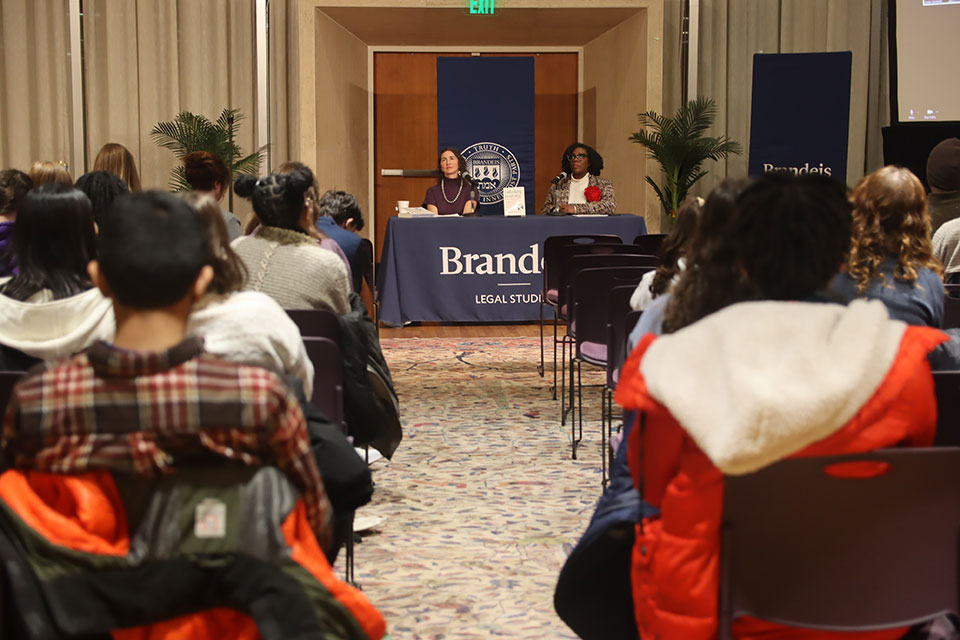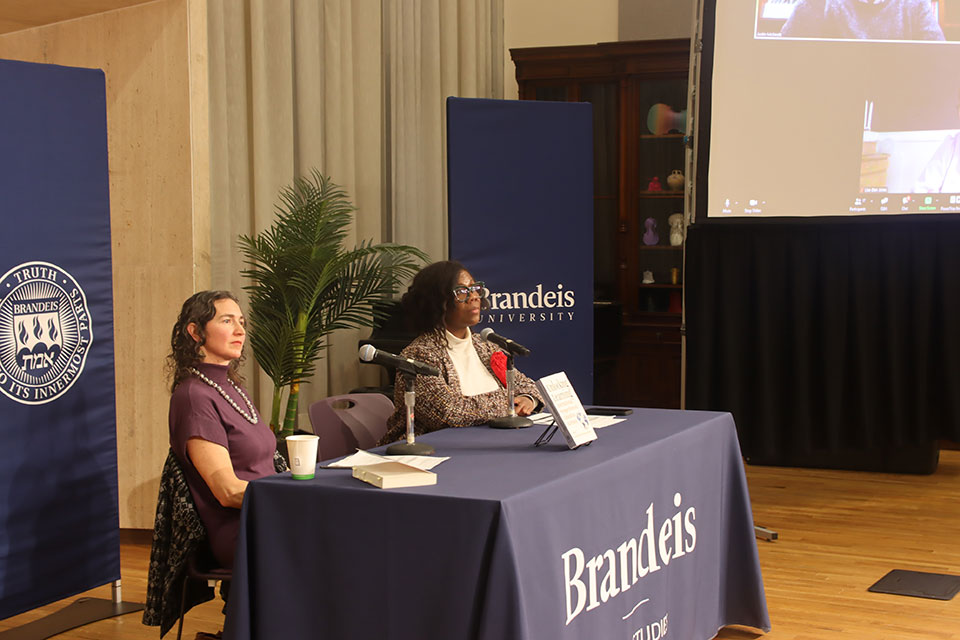An Interview with 2024 Florence Levy Kay Fellow Dr. Tanishia LaVette Williams-Peterson

Professor Williams, answering student questions at the Brandeis University Press event: Unlocking Education panel.
Photo Credit: Efosa Ologbosere
Dr. Tanishia Williams, Florence Levy Kay Fellow, shares her experience as an educator as well as navigating higher education.
By Lauryn Williams
Dr. Tanishia LaVette Williams-Peterson is currently the Florence Levy Kay Fellow in Racial Justice, Education, and the Carceral State, for the Interdepartmental Program in Legal Studies. From her first day, Professor Williams says that she has been surrounded by brilliant professors who have not shied away from providing guidance and mentorship. “Brandeis has not let me down one bit,” she says.
Professor Williams has dedicated herself to working in education within marginalized populations. She has worked with a variety of students ranging from: incarcerated youth in DC, adult learners pursuing their GED, and court or involved youth parenting teams. Throughout her career she has been a superintendent, executive director, principal, and a teacher in school systems undergoing extensive reform.
 Professor Williams at the Unlocking Learning Panel. Photo credit: Efosa Ologbosere
Professor Williams at the Unlocking Learning Panel. Photo credit: Efosa Ologbosere
While she is currently building a curriculum for carceral studies classes at Brandeis, she is also teaching a cross listed course in Education and Legal Studies in the fall of 2024 called “Critical Race Theory and Education.” The course will examine public education disparities through the foundation of critical race theory. Professor Williams is passionate about creating classes that provide activities and experiences for students, especially when they apply the skills they learned to the real world. She says that the “higher education space really serves as this preparatory ground for folks who will go off and make system changes and policy changes.” Professor Williams notes that she feels incredibly grateful and fortunate to work with such a wide array of people with their own needs and wants within education. “I consider it an honor. I consider it something that has forever shaped my process of becoming the pedagogue that I am today.”
Her quest for knowledge continued even after she obtained her PhD and established her career. Her desire to get a PhD was grounded in wanting to think through and refine her skills to make larger system changes, however, she later realized that her skill set could be refined and improved through learning more. Thus, she aimed to extend that learning through a postdoctoral fellowship at Brandeis University.
“Brandeis checked off all of my boxes of experience…I will forever be an educator and work in education studies and educational services.” When asked what advice she has for future educators and policymakers, Professor Williams highlighted the idea of an evolving justice system. She explained that within her lifetime she has seen strict persecution and punishment of those who have been in possession of marijuana, however, there has been legalization and widespread corporate investment within that industry. She advises people to reflect on the impacts of fluctuations in our legal and justice system.Professor Williams says that humanity is essential to her work and needs to be at the core of the justice system: “Investing in humanity and investing in people is something that we all can do.”